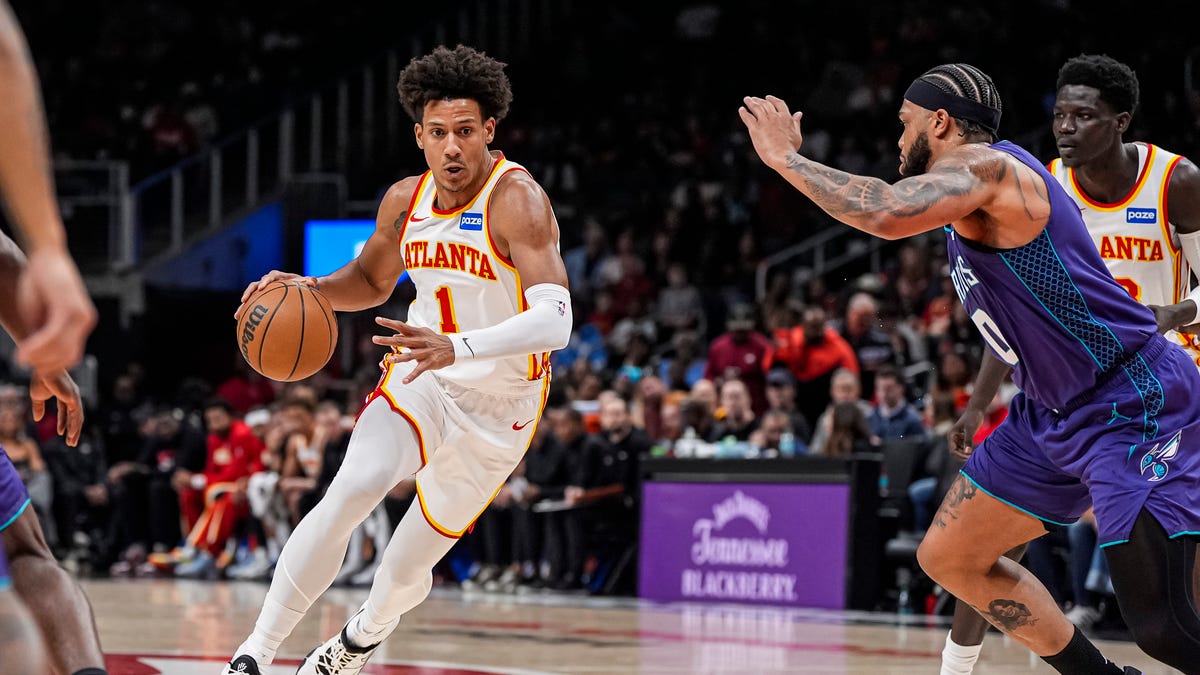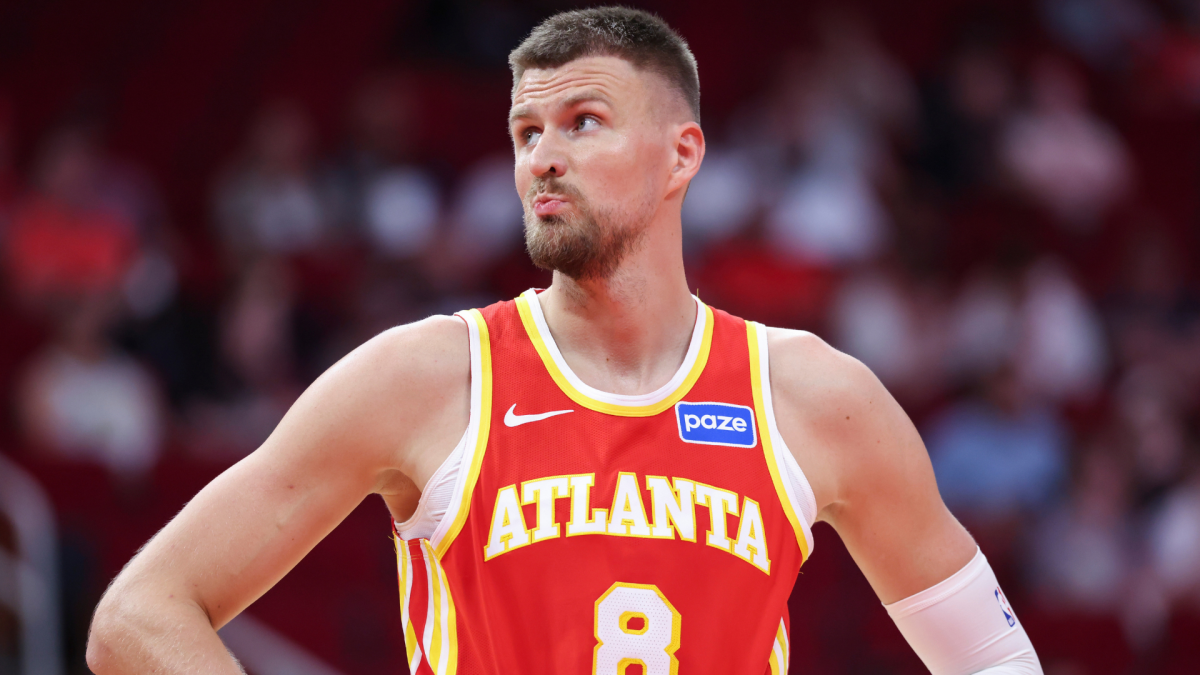They’re Not Even Hiding It Anymore
Let’s just drop the pretense. You see the headlines: ‘Hawks vs. Wizards odds,’ ‘prediction,’ ‘proven model.’ They want you to believe this is a legitimate contest, a professional basketball game between two teams trying to win. It’s not. What’s happening Tuesday at Capital One Arena is a theatrical performance, a carefully staged piece of financial and strategic maneuvering disguised as sport. I’ve been getting whispers for weeks, hushed tones in late-night calls from people who would lose their jobs if their names ever came out. The Washington Wizards are not trying to win. Period. This isn’t a slump; it’s a strategy. A full-blown, unadulterated, top-down tank job so blatant it makes past efforts from other teams look like championship runs. Pathetic.
They’ll feed you lines about a ‘rebuild’ or ‘player development.’ Don’t buy it. A 1-15 record isn’t development; it’s a controlled demolition. You don’t accidentally lose fifteen of your first sixteen games in the modern NBA unless you are actively trying to. It requires a unique cocktail of mismatched rosters, questionable coaching rotations, and a fundamental lack of competitive fire that can only be instilled from the very top of the organization. The front office has a mandate, and it’s not to win the inaugural NBA Cup. It’s to secure the number one draft pick in what they believe is a franchise-altering draft class. Every single loss is a checkmark on their secret, internal whiteboard. So when you see a ‘proven model’ that simulated this game 10,000 times, understand that it’s a useless exercise in digital masturbation. The model assumes both teams are competing. They aren’t. Only one is. The model doesn’t account for a team that benefits more from a loss than a win, a team where a twenty-point blowout is considered a successful night’s work. The Hawks, sitting comfortably at 11-7, are merely the unwitting (or perhaps witting) executioners in this charade. They’ll show up, run their plays, and collect an easy win that pads their stats and their standing in this glorified mid-season tournament that the league is so desperate to make relevant. The real game isn’t happening on the court; it’s happening in the executive suites.
The Blueprint for a Controlled Burn
So how do you orchestrate a collapse this perfect? It’s an art form, really. A dark one. First, you assemble a roster that has just enough talent to be plausibly professional but zero chemistry. You pair a ball-dominant guard who needs rhythm with bigs who can’t set a proper screen. You give significant minutes to young, raw players in situations they are designed to fail in, all under the guise of ‘gaining experience.’ The veterans on the team? I hear they’re ghosts. They know the deal. They cash their checks, play their minutes, and avoid eye contact with the coaching staff because everyone understands the unspoken directive: do not win. You can see it in their body language. The slumped shoulders after a missed shot, the slow jog back on defense, the lack of communication on switches. It’s the posture of a team that has accepted its fate, a team whose spirit has been surgically removed by its own management.
I’m told the mood in that locker room is toxic. Not angry, but worse. Apathetic. It’s a morgue. Players are playing for their next contract, for their stats, not for the name on the front of the jersey. Why would they? The organization has made it crystal clear that the name on the front of the jersey represents a commitment to losing. The coaching staff is in an impossible position. They’re puppets. They’re given rotations designed to fail, and they have to go out there and pretend to be strategizing for a victory. It’s a joke. They’re coaching with one hand tied behind their back, all while knowing their job security is non-existent. They are the fall guys, the public face of a failure that was engineered in a boardroom. The Hawks are going to walk into this game and probably put up 140 points without breaking a sweat. Trae Young might just sit the entire fourth quarter, not because they’re resting him, but because the game will be so laughably out of reach that playing him would be an insult to everyone’s intelligence. This isn’t a sports contest. It’s a business transaction where the Wizards are purchasing a higher draft pick with the currency of their own dignity and their fans’ trust.
And what about this NBA Cup? What a stage for this farce. The league is pouring millions into marketing this new tournament, trying to create a European soccer-style excitement. They want drama. They want intensity. And what do they get? A 1-15 team in a showcase game that is functionally a forfeit. It exposes the entire concept as a flimsy marketing ploy that can’t hide the deep, structural problems within the league’s competitive balance. A team can openly punt on an entire season, including the league’s shiny new toy, and there are zero consequences. In fact, they are rewarded. It’s a broken system, and this game is exhibit A. It’s a stain on the integrity of the competition, and nobody at the league office seems to care as long as the television revenue checks keep clearing. They know. Oh, they know.
The End Game and the League’s Silent Approval
Don’t for a second think the league office is blind to this. They aren’t. They see the box scores, they see the abysmal point differentials, and they hear the same whispers I do. They are complicit through their inaction. Why? Because superstars, often found at the top of the draft, drive ratings and jersey sales. A generational talent landing in a major market like Washington is, in the long run, good for business. The league will publicly frown upon tanking, maybe even levy a token fine for some executive’s loose-lipped comments, but they will never fundamentally change the lottery system in a way that truly eradicates the incentive to lose. They need it. The system is designed to produce these scenarios, to give ‘hope’ to moribund franchises by allowing them to bottom out in the most disgraceful way imaginable. It’s a cyclical pattern of manufactured parity.
So the Hawks will win this game by 25 points. Maybe 30. The sportsbooks will adjust their lines, the analysts will talk about Atlanta’s offensive efficiency, and everyone will politely ignore the rotting carcass on the other side of the court. The Wizards will inch one loss closer to securing their coveted draft lottery odds. The front office will sleep soundly, believing their cynical, soul-crushing strategy is a stroke of genius. But the real cost is the erosion of trust. The fans in D.C., the ones who pay for tickets and merchandise, are being sold a fraudulent product. They are being asked to cheer for a team that is actively trying to lose. It’s an insult of the highest order. This isn’t just about one game on a Tuesday in November. It’s about the very soul of competition. When the incentive to lose outweighs the incentive to win, the sport ceases to be a sport. It becomes a cold, calculated financial play, and everyone who loves the game is poorer for it.
Watch the game if you must. But don’t watch it as a fan of competition. Watch it as a case study in corporate strategy. Watch the players going through the motions. Watch the coaches with their dead eyes. Watch a franchise publicly sacrifice its present for a hypothetical, uncertain future. The final score will be the least important detail of the night. The real story is the one they don’t want you to see. The one they pray you’ll ignore while they distract you with shiny logos for a meaningless Cup and ‘proven models’ that can’t possibly compute the depth of this institutionalized surrender. Utterly shameless.


